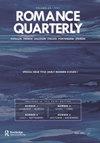《La Guerre》和《Les gsamants》:反霸权主义、情境主义、后现代主体的使用手册?
IF 0.2
3区 文学
0 LITERATURE, ROMANCE
引用次数: 0
摘要
摘要本文提出对勒克莱齐奥的小说《La Guerre》(1970)和《Les Géants》(1973)进行情景主义解读。Debord和Le Clézio说明,跨国资本主义的兴起与超现实和后真相时代的诞生不谋而合并非偶然。面对失去权力和影响力的现实可能性,大师或巨人为了生存而改变了他们的方法。Debord和Le Clézio谴责了这种结构调整的毁灭性连锁反应,这种结构调整将通过巧妙地强加商业模拟来重新定义社会和整个社会关系。即使两位作者都用夸张的话语来强调他们的要点,他们也意识到信息时代的利害关系。Debord和Le Clézio没有简单地乐观地认为未来的道路会很容易,他们敦促这个被疏远的后现代主题反抗。尽管他们宣传的竞争用户手册有明显的局限性,但他们的反霸权技术可能是通过消费共和国的标志来对抗社会商品化、主体死亡和民众征服的初步蓝图。本文章由计算机程序翻译,如有差异,请以英文原文为准。
Le Clézio’s La Guerre and Les Géants: Counter-Hegemonic, Situationist, User Manuals for the Post-Modern Subject?
Abstract This article proposes a Situationist reading of Le Clézio’s novels La Guerre (1970) and Les Géants (1973). Debord and Le Clézio illustrate that it is not by accident that the rise of multinational capitalism coincides with the birth of hyperreality and the post-truth era. Faced with the realistic possibility of losing their power and influence, the masters or the giants shifted their approach in order to survive. Debord and Le Clézio denounce the devastating ripple effects of this structural adaptation that would redefine society and the entirety of social relations through the skillful imposition of commercial simulacra. Even if both authors engage in hyperbolic discourse to underscore their main points, they are cognizant of what is at stake in the age of (dis-) information. Without providing any facile optimism that the road ahead will be easy, Debord and Le Clézio urge the alienated, post-modern subject to revolt. Despite the apparent limitations of the user manuals for contestation that they promote, their counter-hegemonic techniques could be a preliminary blueprint for combatting the commodification of the social, the death of the subject, and the subjugation of the populace through signs in consumer republics.
求助全文
通过发布文献求助,成功后即可免费获取论文全文。
去求助
来源期刊

ROMANCE QUARTERLY
LITERATURE, ROMANCE-
CiteScore
0.30
自引率
50.00%
发文量
18
期刊介绍:
Lorca and Baudelaire, Chrétien de Troyes and Borges. The articles in Romance Quarterly provide insight into classic and contemporary works of literature originating in the Romance languages. The journal publishes historical and interpretative articles primarily on French and Spanish literature but also on Catalan, Italian, Portuguese, and Brazilian literature. RQ contains critical essays and book reviews, mostly in English but also in Romance languages, by scholars from universities all over the world. Romance Quarterly belongs in every department and library of Romance languages.
 求助内容:
求助内容: 应助结果提醒方式:
应助结果提醒方式:


